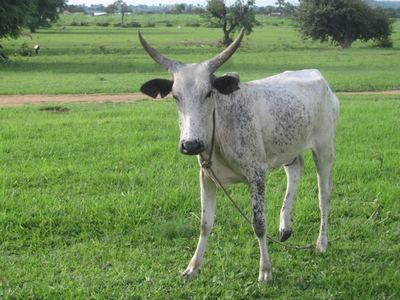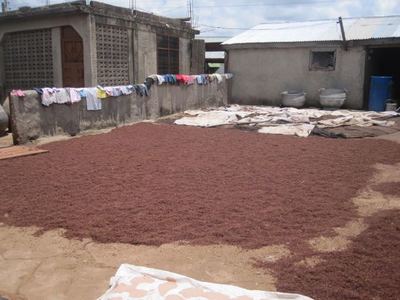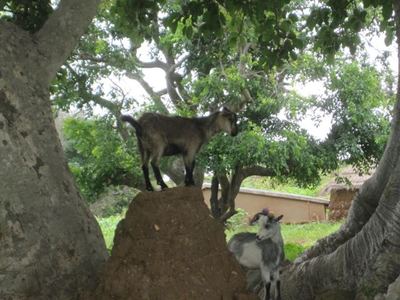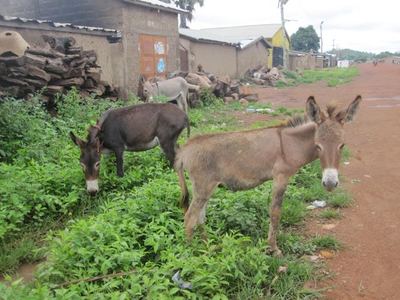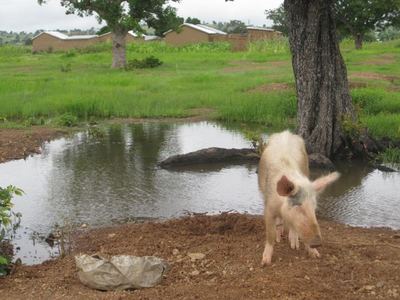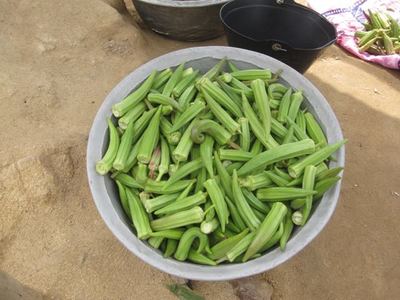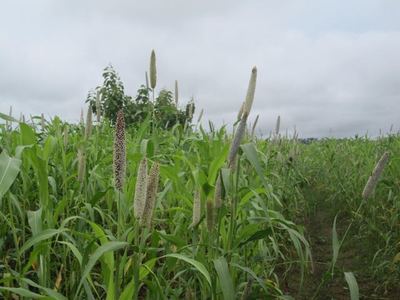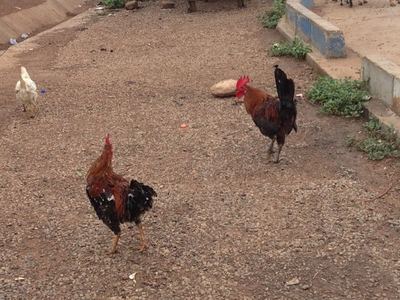I don't want to romanticize village life, it is not an easy existence, particularly during the dry season. But it is interesting to me that over centuries people have developed an agriculture that is well suited for their climate and sustainable. It is equally interesting to me that in the U.S. we are only just discovering the benefits of such a lifestyle.
|
In the U.S. we laud "farm to table" as a sort of elite social movement, but in african villages it is a way of life. The village I stayed in, Pelugru, is up in the northern part of Ghana and is fairly remote. They only get three months of rain during the year, so all their crops and food have to be adapted to that climate. Of course that's precisely what people in that area have been doing for hundreds of years, so they are pretty good at it. Most meals consist of a starch and a meat soup or stew. During the rainy season there are also vegetables like okra, tomatoes and peppers. Starches include plantains, cassava, millet and taro roots (believed to be one of the very earliest cultivated crops), all of which grow locally and store well (for the 9 months of dry season). And the meat comes from pretty much anything that moves: chickens, guinea fowl, goats, sheep, pigs, cows and donkeys. These are all animals that can fend for themselves and graze on what's available, so of course all their meat is organic, "free range" and "grass fed." In the U.S. we pay a premium for that, but in africa that is just what is sustainable. In addition people make their own cooking oil, from ground nuts and palm nuts. They also make their own alcohol: pito is fermented millet and there is also palm wine further south. Villagers even make their own charcoal by burying smoldering wood under dirt.
I don't want to romanticize village life, it is not an easy existence, particularly during the dry season. But it is interesting to me that over centuries people have developed an agriculture that is well suited for their climate and sustainable. It is equally interesting to me that in the U.S. we are only just discovering the benefits of such a lifestyle.
0 Comments
|
Categories
All
Archives
August 2019
|
